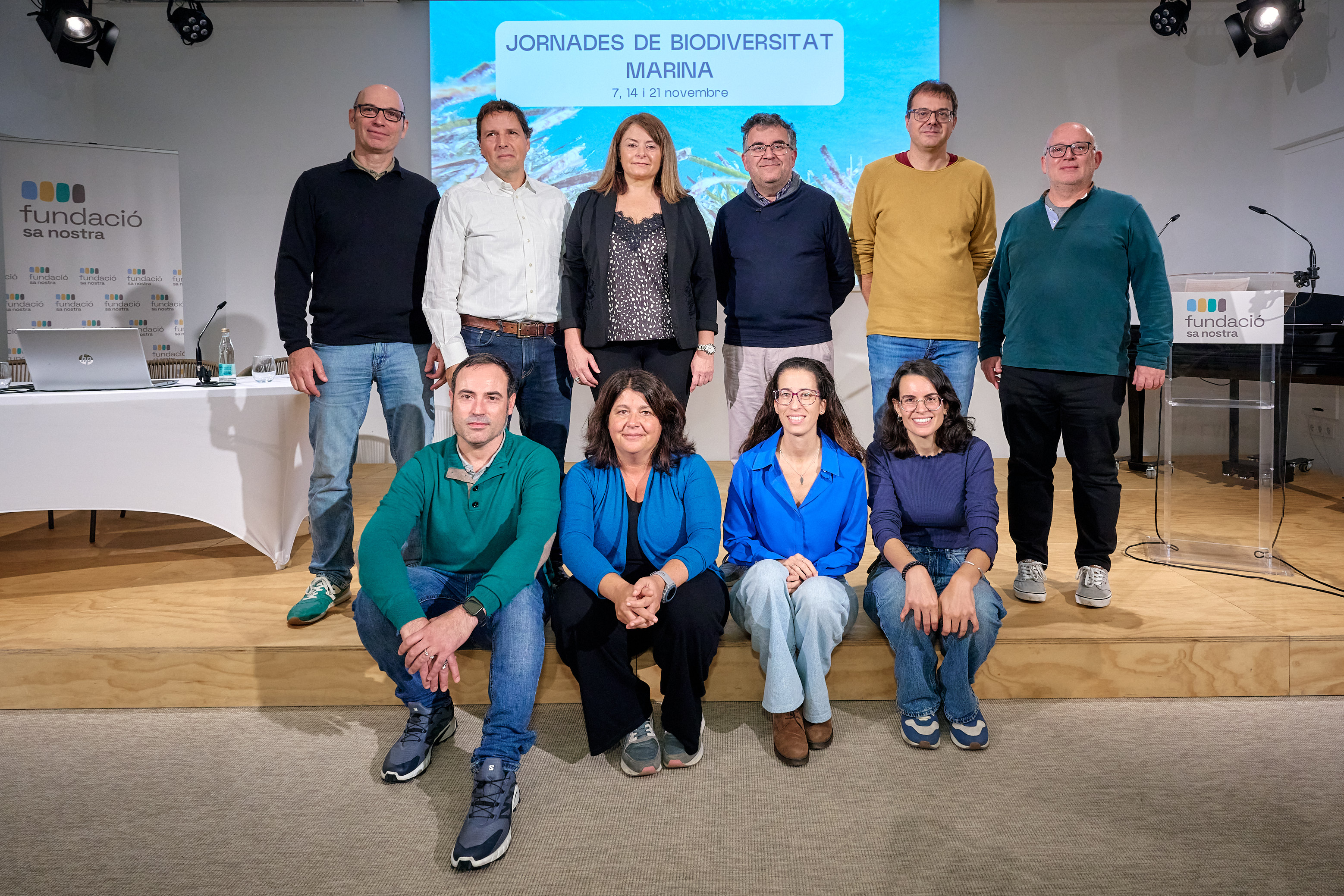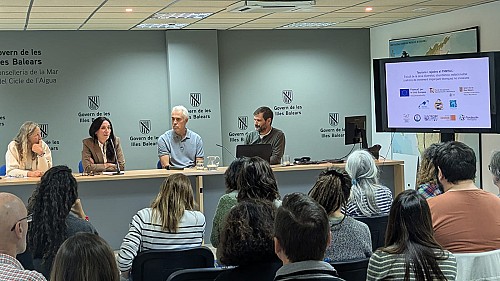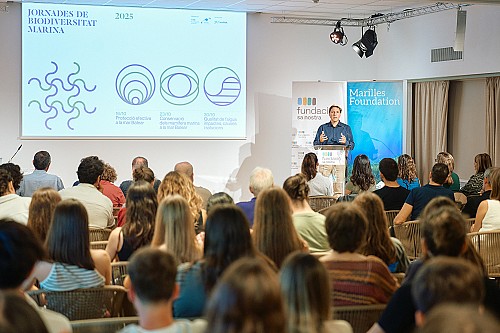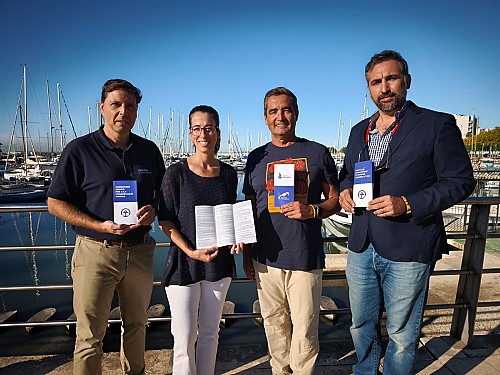Wide agreement on the need to put more effort into marine conservation in the Balearic Islands
Published 21.11.2024
Share

The third and final session of the Balearic Marine Biodiversity Conservation Conference, dedicated to gorgonians, corals, sponges, and other marine invertebrates, was held last november. The series of meetings, organised by Marilles Foundation in collaboration with the Sa Nostra Foundation and with funding from CaixaBank and the support of the Government of the Balearic Islands, brought together more than 300 participants.
The aim was to generate proposals for the conservation of vulnerable marine ecosystems in the Balearic Sea through the exchange of knowledge and joint action. During the three days, consensus was reached on what protocols are needed to improve the monitoring of these habitats and species that are not currently receiving all the attention they deserve.
The final session was opened by the Regional Councillor for Agriculture, Fisheries and the Natural Environment, Joan Simonet. He stressed the importance of organising joint work spaces such as this one, and thanked Marilles Foundation for its collaboration in the creation of the shallow bays and shark and ray monitoring plans that the Government of the Balearic Islands has recently set up.
A positive balance and commitments for the future
The conference was a great success in terms of participation. Thirty speakers and hundreds of participants from the scientific, conservation, and political sectors pooled their experiences and knowledge to draw up a list of proposals for conserving the Balearic Sea.
Aniol Esteban,director of Marilles Foundation, captured the main challenge: ‘There is a consensus that improving knowledge and coordinating efforts for the conservation of marine biodiversity is a priority. We have excellent scientific knowledge and a clear will to work together across all sectors. What we lack are more resources and budget to turn these ideas into concrete actions. We do not have sufficient data collection systems to allow us to know what the status of these species is and how we can tackle their conservation with maximum guarantees and success.’
As a result of the conference, documents are being drawn up with specific proposals for monitoring plans for shallow bays and for sharks and rays. They will be sent to the Government of the Balearic Islandsfor consideration and, it is hoped, subsequent implementation. A document on the conservation of corals and gorgonians will also be drawn up and sent to the government so that it can design protection plans for these species based on scientific knowledge.
The Balearic Marine Biodiversity Conservation Conference has reaffirmed the need to work collectively to protect the marine ecosystems of the Balearic Islands and the Mediterranean, taking decisive steps towards a more sustainable future.




